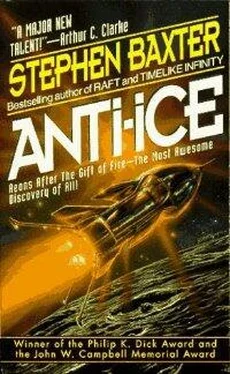As for Prussia, there is that wily old fox Prince Otto von Schцnhausen Bismarck, still ruling the Berlin roost at the age of ninety-five. The new Emperor, the second William, is putty in Bismarck’s liver-spotted hands.
For a long time it was argued that Bismarck had become a friend, if a reluctant one, of the British—for consider the trade and cultural exchanges which have proceeded in the intervening decades between our two nations.
But surely recent events—principally Bismarck’s disgraceful intervention in the question of the Austrian succession, so reminiscent of the intervention in Spanish royal affairs by which he provoked his earlier war with France—have proved the lie of this.
Bismarck has played out the intervening decades like the opportunist and devious politician he is; and by a series of ruses, feints and stratagems has maintained his own position in Prussia, and Prussia’s position in Europe.
Bismarck is no friend of Britain. Britain stopped him achieving his life’s goal: the unification of Germany. It is as if Bismarck refuses to die until this goal is achieved—or at least until Manchester is rendered impotent to intervene.
Now he is ready to strike. And we await the new Ems telegram which will provoke the armed conflict with Britain. What role will France adopt? If the Prussian goal is the scrubbing of British influence from the plains of Europe, then the best we can hope for is that the Frenchies stay neutral. Let us not forget the ghosts of Orléans… And it does not help that the present French foreign minister is one Frédéric Bourne.
But surely, you insist, even now Bismarck is only testing our nerve. Surely he will never risk calling down a rain of anti-ice fire on his own countrymen.
But he will, I say. For, Edward, I believe that Bismarck now has anti-ice weapons of his own with which to reply; the security of our stock of anti-ice, however thorough, cannot have remained inviolate for all these decades. The Prussian weapons will be every bit as powerful as Britain’s—or more so, given the application of Prussian military ingenuity.
What, then, will be the outcome?
A new Balance of Power might emerge, I suppose: a face-down between two states, Britain and Prussia, each bristling with anti-ice weaponry, each deterred from further warfare by the devastating capability of the other… Will this Balance guarantee peace? Perhaps. But these past decades of British hegemony will not be easily forgiven in the halls of Europe. Recall the address to the Commonwealth of His Majesty at the dawn of the new century, in which he described the future. A thousand years of British power… the shadow of the Union Flag stretching across the centuries—such ranting has only added to the stockpile of disaster which awaits ourselves or our descendants.
Edward, I fear war is now inevitable. The embittered old men of Berlin and Paris will scarce blink an eye at the destruction of their own populace, if it means the erasure of Britain from the European map; and so, deceived by our own vain and arrogant complacency, we face a darker war than man has yet seen.
I pray that you now understand my fear and dread; and I pray, of course, that we all survive the coming days of darkness, and are reunited at last in the sunlight of a better and more just world.
I Remain, With Love,
Your Devoted Father
NED VICARS












